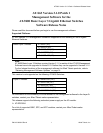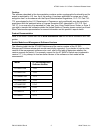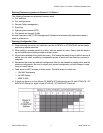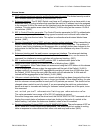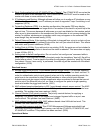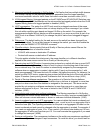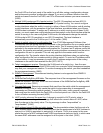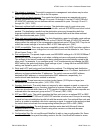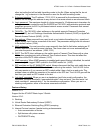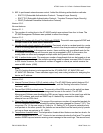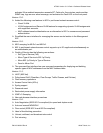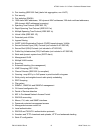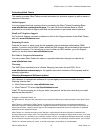
AT-S63 Version 3.1.0 Patch 1 Software Release Notes
PN 613-000915 Rev A 10 Allied Telesis, Inc.
802.1x port-based network access control. Added the following authentication methods:
— EAP-TLS (Extensible Authentication Protocol - Transport Layer Security)
— EAP-TTLS (Extensible Authentication Protocol - Tunneled Transport Layer Security)
— PEAP (Protected Extensible Authentication Protocol)
Version 2.2.0:
No new features.
Version 2.1.1:
The number of cooling fans in the AT-9424Ts switch was reduced from four to three. The
AT-S63 Management Software was updated to reflect the change.
Version 2.1.0:
Multiple IPv4 routes with Equal Cost Multi-path (ECMP). The switch now supports ECMP and
multiple routes to the same remote destination.
Variable length subnet masks for IPv4 routing. Previously, a byte in a subnet mask for a route
in the IPv4 routing table had to be 0 or 255. The switch now accepts masks of variable length.
Multiple default routes. In the previous version, there could be only one default route for the
IPv4 packet routing feature and the route was not propagated by RIP. In this version, the
routing table can store and propagate multiple static and dynamic default routes.
802.1x authenticator ports. The maximum number of supplicants that can be logged on to an
authenticator port running in the multiple operating mode has been increased from 20 clients
to 320 clients. However, the maximum number of logged on clients per switch remains the
same at 480 clients. (4186)
Note:
The IPv4 routing feature is not supported on the AT-9408LC/SP, AT-9424T/GB, and
AT-9424T/SP Switches. These switches support only one routing interface for assigning the
device an IP address.
Version 2.0.0:
Internet Protocol Version 4 (IPv4) packet routing. The AT-9400 Series switch features IPv4
packet routing with routing interfaces, static routes, and the Routing Information Protocol
versions 1 and 2.
Secure Shell (SSH) protocol server. The security of the SSH server on the switch has been
enhanced to prevent unauthorized management access to the switch. The AT-S63
Management Software now disables the SSH server, logs an event in the event logs with the
client’s IP address, and sends an SNMP trap if it detects fifty consecutive failed login
attempts from an SSH client.
Class of Service and Queue 7. The range of the maximum number of transmitted packets for
the CoS weighted round robin scheduling method has been changed for Queue 7 (Q7). The
range was 1 to 15; the new range is 0 (zero) to 15. Setting Q7 to 0 gives its packets priority
over packets in the other queues. No packets are transmitted from the lower priority queues
so long as there are packets in Q7. (3803)
Temperature threshold alert. The temperature threshold alert feature now has two levels. An
ambient temperature of 55
° to 60° Celsius for ten minutes activates the first level. The switch
sends a SNMP trap and enters a warning event message in the event logs. The second level,



